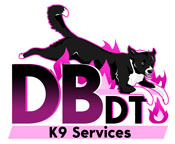Agility/Puppy/Obedience Foundation Groups
When starting out in agility or any dog activity, puppy class, it is most important that we build focus and value for the owner/handler.
Our beginners groups will cover reward structure and reinforcement. The dog must want to work for its reward. Its not achievable if the dog has no regard for what you have to offer, otherwise how do we communicate to the dog what’s right or wrong?
We aim to achieve the dog to be able to perform behaviours in all environments. In other words regardless of distractions and arousal level, the dog is able to understand what is required.
The dog in a class environment has to view the owner as being more important than all other exciting things going on around it otherwise we lose focus and control and the dog runs off to play with another dog, or zooms round the field/arena or simply just stands shaking or sniffing the ground not willing to do anything.
We have to build this reward structure into their life to make it worth their while to do the behaviours. – Like being paid I guess.
At your first agility lesson you won’t be going over equipment. This needs to be taught properly so no accidents happen plus building value into the equipment so it becomes fun for your dog. No good dragging a dog over a seesaw or dog walk on its first lesson there’s no understanding of how to do the equipment and it hasn’t been made fun. This could be detrimental to the dog causing the dog to be fearful of the equipment.
We do lots of games, activities around building focus and self-control to enable the dog to learn how to behave in the environment when presented with the excitement of other dogs running and barking. Most importantly we want to build a relationship where both you and your dog can have fun together enjoying that special bond you have with your dog.
The obedience/puppy classes also require the same criteria. The dog needs to be able to focus and recall for instance when in a class environment, or sit etc regardless of what is happening around it or how exciting someone else’s dog can be. This is what we require as owners to build recalls, for instance, in stimulating environments. The dog should be able to understand what is required when we ask in everyday life whilst out walking or in the home. Be patient whilst your dog learns how to behave in different environments. These behaviours can be taught and tested at home with a series of games that help with the dog accepting having its collar held to self-control around food or toys thus rehearsing behaviours we require when presented with exciting environments.
My 121 visits will work on my Earn and Learn Theory which allows the dog to be able to work for its rewards. If I can be of any help with any problems you maybe be experiencing. Please do not hesitate to ask for advice.
Classes will be running CentrePaws for new owners, puppies and life skills.
For more information please contact DBDT on [email protected]



